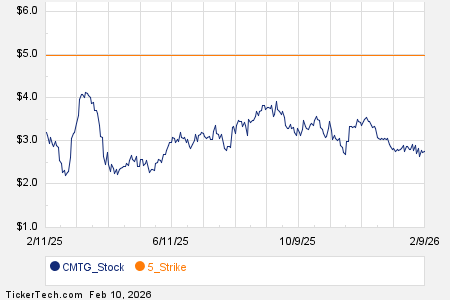“`html
Amazon Capitalizes on Retail Shrinkage to Strengthen Market Position
Consumer behavior has transformed significantly since Amazon (NASDAQ: AMZN) first opened its virtual doors over 30 years ago. Originally a humble online bookstore, it has since evolved into the “Everything Store,” showcasing the simplicity and convenience of digital shopping.

Image source: Getty Images.
The Impact of Economic Changes
The last couple of years have been challenging for consumers, marked by inflation rates reaching a four-decade high. In response, the Federal Reserve increased interest rates to their highest levels in more than 20 years. This situation forced consumers to make difficult choices in everyday spending at supermarkets and gas stations.
Alongside these financial strains, grocery shrinkage—losses from theft, return fraud, and employee stealing—has surged. Major retailers are increasingly concerned about these losses, which have reached epidemic levels.
In response to these challenges, many stores are now locking up high-theft items. Products such as vitamins, personal hygiene items, and even laundry detergent are being kept behind secure displays. While these measures can help prevent theft, they complicate the shopping experience for consumers, as acquiring locked items requires assistance from store employees.
A survey by Consumer World shows that only about one-third of shoppers will seek help to unlock items, leading many to leave the store empty-handed. This trend presents a significant opportunity for Amazon.
Amazon’s Strategic Moves
During an analyst call in August, CEO Andy Jassy acknowledged that Amazon is seizing this opportunity, particularly through its pharmacy services.
When you think about the experience and the speed and ease with which you can order versus walking into a pharmacy … it’s a pretty tough experience with how much is locked behind cabinets, where you have to press a button to get somebody to come out and open the cabinets for you.
He emphasized that customers enjoy the convenience of online shopping, with many choosing it over the difficulties presented by physical store experiences.
It’s not only pharmacies facing this issue. Major retailers like Walmart and Target are also locking up theft-prone items, creating additional space for Amazon to strengthen its e-commerce dominance.
Amazon’s Market Leadership
Amazon remains the undisputed leader in e-commerce, commanding 38% of U.S. online retail as of 2023—more than all 15 of its largest competitors combined, according to eMarketer. The company aims to increase this share by drawing consumers frustrated by physical retail practices.
Reports from Indyme indicate that these locking measures have led to sales declines of 15% to 25%, presenting Amazon with a lucrative opportunity to capture dissatisfied customers.
Amazon’s net sales rose 11% year over year to $159 billion in the third quarter. Earnings per share increased by 52% to $1.43. While it is hard to quantify how much of this growth is linked to frustration with retail theft mitigation, the ease of shopping online has long been a major draw for consumers. Consequently, the struggles of physical retailers could inadvertently enhance Amazon’s robust position.
The stock is currently priced at just 3 times forward sales, a competitive valuation given the company’s vast market opportunities.
Should You Invest $1,000 in Amazon Right Now?
Before making any investment decisions, consider this:
The Motley Fool Stock Advisor team recently identified what they believe are the 10 best stocks for investors right now—and Amazon isn’t on the list. The top stocks selected could yield substantial returns in the coming years.
To put things into perspective, consider that if Nvidia had been on this list back on April 15, 2005, a $1,000 investment would now be worth $896,358!
Stock Advisor offers a straightforward roadmap for investors, providing portfolio-building advice, regular analyst updates, and two fresh stock picks each month. The service has more than quadrupled the returns of the S&P 500 since 2002.
Discover the 10 stocks »
*Stock Advisor returns as of November 11, 2024
John Mackey, former CEO of Whole Foods Market, an Amazon subsidiary, serves on The Motley Fool’s board of directors. Danny Vena is an investor in Amazon. The Motley Fool also supports Amazon, Target, and Walmart. Please see their disclosure policy for further details.
The views and opinions expressed herein are those of the author and do not necessarily reflect those of Nasdaq, Inc.
“`






